Bible Reflections From Scripture Union Volume OneSample

Overview of Hebrews 1–8
All of us come to Christ carrying with us some of our former religious and cultural traditions. No one anywhere in the world is really free from this. As Asians, for many of whom Christ is only a first or second generation experience, non-Christian attitudes and ways of thinking may be unconsciously ingrained inside us or be part of our reflex.
From the contents of this letter we can see that this epistle was written to Jewish Christians to resolve the conflict they had between following Jesus and following the Old Covenant. In Christ there is no need for believers to offer the sacrifices prescribed by the Law of Moses but understandably this struck at the core of Jewish beliefs. Hebrew Christians had to deal with that. The epistle of the Hebrews helped them go to the root of how Jesus, 'God incarnate for our salvation', deals with their former religion.
In the same way this letter shows us, the essence of the Gospel and helps us see what we can keep from our culture and what we must leave behind.
It also seems clear that for Hebrew Christians, staying on as Christians involved suffering persecution (10:32-34) whereas falling back to Judaism would remove that threat. Judaism was a recognized religion in the Roman Empire while Christianity was not. If ever today we might face loss for Christ's sake, this letter shows us how Christ is worthy and supreme above all.
Only in heaven will we know who wrote this epistle. But we know the author knew Timothy (13:23). That makes the circle quite small. It could be Silas, it could be Apollos, it could be Barnabas, it could be somebody else. It has been thought that it was Paul who wrote the letter, but most people now agree that the way it is written does not bear his mark.
We also don't know for sure when this letter was written. However, the mention of Hebrew sacrifices suggests that the temple at Jerusalem that was destroyed in 70 AD was still standing. The fact that persecution had broken out suggests that it was written after the persecution of Nero in 64 AD. There is no address to tell us to whom it was written, but they were obviously people who knew Timothy and the phrase 'those from Italy send you their greetings' (13:24) suggests that the letter might have been sent to the Jewish church in Rome.
Something Better
Read Hebrews 1:1-14
The Son is the radiance of God's glory and the exact representation of his being, sustaining all things by his powerful word. After he had provided purification for sins, he sat down at the right hand of the Majesty in heaven. Hebrews 1:3
Jews, even Christian Jews, felt a very strong bond to the Law and the Prophets, the Old Testament as they knew it. Over generations they had become deeply convinced about God’s message to them. God had called Abraham, who, because he was faithful, was blessed abundantly. In the same way, the Jews or Hebrews as a people, were called to be faithful to the Law through Moses. They proved unfaithful and as a nation were exiled 600–800 years after Moses. In exile, they learned repentance and developed a will never to forsake the Law again.
Now God had revealed something new. He had spoken through His Son. God's promises through His prophets of a Messiah had been fulfilled. But it was not what the Hebrews expected. The message did not contradict God’s nature but it did change very deeply things the Jews held closely in the practice of their religion. How could they put aside these familiar and precious things?
The letter of Hebrews sets the stage for this by telling them they could change when they have something better. 'You have the Son of God' and that is surely something better than whatever they had before. Scripture shows us that Jesus is the Son (v 5), above all else (vs 6,13), equal to God (v 8) and everlasting (vs 10-12).
As Asians coming to Jesus, we too must leave behind all ties with Asian deities, all idolatrous religious practices and ingrained superstitious beliefs. We must put aside any necromancy (consulting dead spirits) and geomancy (feng shui).
All of us come to Christ carrying with us some of our former religious and cultural traditions. No one anywhere in the world is really free from this. As Asians, for many of whom Christ is only a first or second generation experience, non-Christian attitudes and ways of thinking may be unconsciously ingrained inside us or be part of our reflex.
From the contents of this letter we can see that this epistle was written to Jewish Christians to resolve the conflict they had between following Jesus and following the Old Covenant. In Christ there is no need for believers to offer the sacrifices prescribed by the Law of Moses but understandably this struck at the core of Jewish beliefs. Hebrew Christians had to deal with that. The epistle of the Hebrews helped them go to the root of how Jesus, 'God incarnate for our salvation', deals with their former religion.
In the same way this letter shows us, the essence of the Gospel and helps us see what we can keep from our culture and what we must leave behind.
It also seems clear that for Hebrew Christians, staying on as Christians involved suffering persecution (10:32-34) whereas falling back to Judaism would remove that threat. Judaism was a recognized religion in the Roman Empire while Christianity was not. If ever today we might face loss for Christ's sake, this letter shows us how Christ is worthy and supreme above all.
Only in heaven will we know who wrote this epistle. But we know the author knew Timothy (13:23). That makes the circle quite small. It could be Silas, it could be Apollos, it could be Barnabas, it could be somebody else. It has been thought that it was Paul who wrote the letter, but most people now agree that the way it is written does not bear his mark.
We also don't know for sure when this letter was written. However, the mention of Hebrew sacrifices suggests that the temple at Jerusalem that was destroyed in 70 AD was still standing. The fact that persecution had broken out suggests that it was written after the persecution of Nero in 64 AD. There is no address to tell us to whom it was written, but they were obviously people who knew Timothy and the phrase 'those from Italy send you their greetings' (13:24) suggests that the letter might have been sent to the Jewish church in Rome.
Something Better
Read Hebrews 1:1-14
The Son is the radiance of God's glory and the exact representation of his being, sustaining all things by his powerful word. After he had provided purification for sins, he sat down at the right hand of the Majesty in heaven. Hebrews 1:3
Jews, even Christian Jews, felt a very strong bond to the Law and the Prophets, the Old Testament as they knew it. Over generations they had become deeply convinced about God’s message to them. God had called Abraham, who, because he was faithful, was blessed abundantly. In the same way, the Jews or Hebrews as a people, were called to be faithful to the Law through Moses. They proved unfaithful and as a nation were exiled 600–800 years after Moses. In exile, they learned repentance and developed a will never to forsake the Law again.
Now God had revealed something new. He had spoken through His Son. God's promises through His prophets of a Messiah had been fulfilled. But it was not what the Hebrews expected. The message did not contradict God’s nature but it did change very deeply things the Jews held closely in the practice of their religion. How could they put aside these familiar and precious things?
The letter of Hebrews sets the stage for this by telling them they could change when they have something better. 'You have the Son of God' and that is surely something better than whatever they had before. Scripture shows us that Jesus is the Son (v 5), above all else (vs 6,13), equal to God (v 8) and everlasting (vs 10-12).
As Asians coming to Jesus, we too must leave behind all ties with Asian deities, all idolatrous religious practices and ingrained superstitious beliefs. We must put aside any necromancy (consulting dead spirits) and geomancy (feng shui).
Scripture
About this Plan

Scripture Union Peninsular Malaysia's Bible reflections are devotional readings from the thoughts and insights of Asian writers. Consisting of 8 volumes, they cover the whole Bible in four years. Each volume contains books from the Old and New Testaments, and has a mix of historical, poetic and prophetic books, the gospels and epistles. Using this you can cultivate the discipline of a regular, systematic engagement with Scripture and gain an understanding of its magnificent story.
More
We would like to thank Scripture Union for providing this plan. For more information, please visit: http://www.su.org.my
Related Plans

Right From The Heart - Plan Two
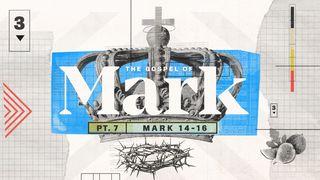
The Gospel of Mark (Part Seven)
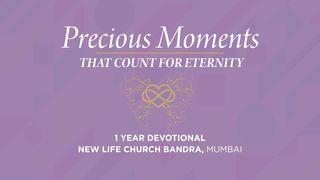
Precious Moments That Count For Eternity
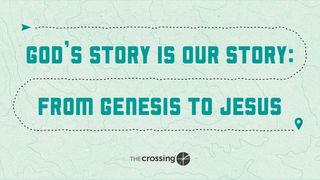
God’s Story Is Our Story: From Genesis To Jesus
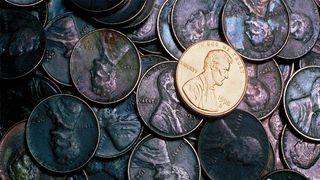
Old and New: Devotions From Time of Grace Ministry
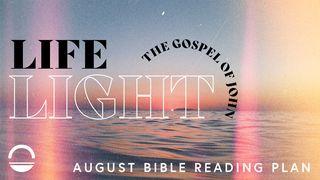
Life Light: Gospel of John

Joy Unshaken: A Journey Through Philippians

House of David, Season 2: Trusting God in the Middle of the Story

How Is It With Your Soul?
